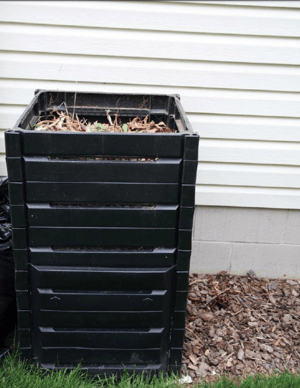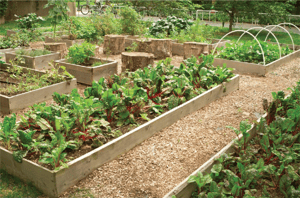New compost facility is great news for gardeners – and for local greenhouse gas emissions
Ever wonder what happens to that banana peel after you throw it away? How about those yard trimmings?
A common misconception is that organic materials like fruit peels and vegetable matter go to the landfill and turn to dirt. Seems logical, right?
Actually, landfills are specifically designed to NOT allow for rapid decomposition. They are capped daily to promote an environment free of air and water, so that whatever goes in stays in the same form that it entered for as long as possible. As a result, food and yard waste that enters the landfill remains completely intact and recognizable for several years.
When that material eventually does break down in the air-free landfill environment, the potent green-house gas called methane is formed and is slowly released into our atmosphere. According to the U.S. Environmental Protection Agency, methane gas can be 84-to-86 times more potent than Carbon Dioxide as a greenhouse gas.
Fortunately, there is a healthy alternative to putting food, yard waste and paper products in the landfill. Here in the Vail Valley, we are fortunate to have a brand new Class III Commercial Compost Facility, owned and operated by Vail Honeywagon. By composting organic material to make stable compost, Honeywagon Organics diverts methane-producing waste from the landfill and generates a beneficial product that helps, rather than harms, the environment.
Composting is a key tactic for the Eagle County Climate Action Collaborative’s goal to reduce emissions by 25% by 2025 and 80% by 2050. Our new commercial compost facility will help pave the way toward reaching those goals – but we won’t get there without YOUR help.

Fortunately, you don’t have to be an expert to compost. In fact, many people make compost right in their back yard by putting all “vegan” waste into a composting bin, and then taking simple steps to properly manage that compost in their own yard. Sometimes composting can get a bad reputation when it is not managed correctly because it can result in bad smells, bugs, weeds, and other undesirable outputs. It doesn’t have to be that way. Learn how to do it right at www.walkingmountains.org/composting.
Thanks to Honeywagon’s new facility, composting is now easier than ever. You can now drop your compost at community drop sites and also purchase finished compost. Composters can learn more at www.vailhoneywagon.com or contact shawn@vailhoneywagon.com.
Composting is one of the “low-hanging fruits” of the Climate Action Collaborative’s emissions reduction plan – and it comes with added benefits, because stable compost is an important part of flower or vegetable gardening. It is nutrient-rich, biologically diverse, and is used to improve soil structure, moisture

retention and general plant health.
This means that the waste that comes out of your kitchen can make your yard and garden more beautiful and more healthy – with the added benefit that your compost efforts can help reduce emissions,
and help Eagle County reach its emissions-reduction goals.
We are making our way, step by step, toward our emissions reduction goals. Step one – and one of the most important steps you can make as a property owner or renter – is to get into the habit of composting. We can all take a part in combating climate change, and our homes and gardens will be much happier for it.The strategy is especially important here in Eagle County because each 1% increase in organic matter helps soil hold 20,000 gallons more water per acre - and that’s something we can all support.







